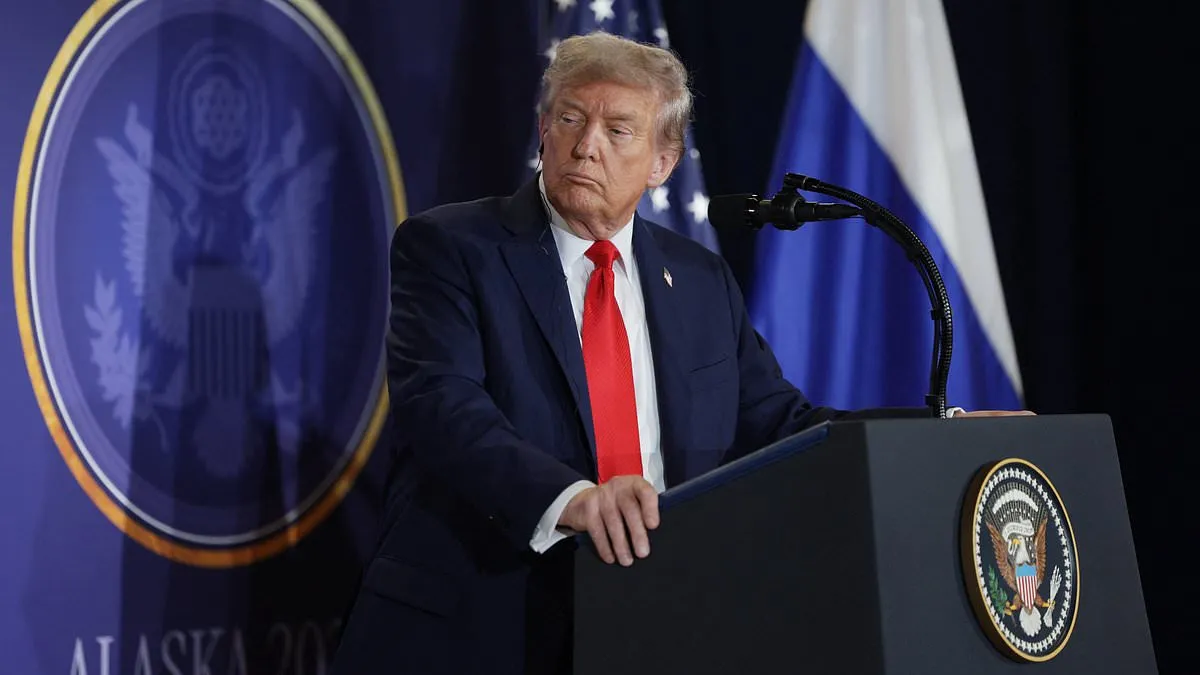
The Trump administration has initiated a strategic plan reminiscent of the historical Manhattan Project, as reports surface about the potential nationalization of one of America’s largest corporations, Intel. As the leading chip fabricator in the United States, Intel is currently in discussions with Donald Trump regarding a possible government stake in the company. Although the specific percentage of the government's potential stake remains undisclosed, the nationalization of a corporation is generally a measure taken during significant emergencies.
This move draws parallels to previous instances where the government nationalized key financial institutions during the 2008 financial crisis and logistics companies during World War II. These historical precedents illustrate that nationalization is often considered only in dire situations. Concerns are growing over America's heavy reliance on Taiwanese chip manufacturer TSCM, especially given China’s ongoing threats to invade the island nation. If such an invasion were to occur, it could severely impact America's competitiveness in the rapidly expanding chipmaking industry, particularly as it relates to advancements in artificial intelligence.
While Intel's AI chips are often viewed as less powerful compared to those produced by competitors like Nvidia and AMD, the company holds a unique advantage by being both a designer and manufacturer of its chips. Trump’s objective is to bolster national security by onshoring chip manufacturing, thereby reducing dependency on foreign production facilities. MIT AI computer scientist Dave Blundin emphasized the critical nature of this initiative, stating, “This feels like the Manhattan Project - or the run-up to World War II. It's every bit as important as the space race was, as the nuclear arms race was. Actually, it's more important.”
Intel’s advanced semiconductor manufacturing capabilities could potentially allow the U.S. to lessen its dependency on overseas fabrication plants, particularly those in Taiwan, which dominate over 60% of the market. This shift is vital for powering artificial intelligence, enhancing national defense, and stimulating economic growth. While discussions are ongoing, insiders have indicated that the U.S. government may finance its stake in Intel, though no agreement is guaranteed and negotiations could falter.
Experts on the podcast Moonshots, hosted by Diamandis, suggest that this initiative reflects a national survival strategy akin to the original Manhattan Project. Blundin remarked, “The reason the U.S. needs to protect Taiwan fundamentally... is because the fabs are there. If the fabs all move to the U.S., then why would the U.S. defend Taiwan?” However, concerns have surfaced regarding the implications of nationalizing a major corporation, as Blundin noted, “They’re putting the whole industry on a kind of war footing, like mobilization for conflict, except the battleground is supply chains and chip fabs.”
In response to inquiries about the discussions with the Trump administration, Intel stated it is “deeply committed to supporting President Trump’s efforts to strengthen U.S. technology and manufacturing leadership.” They further emphasized their focus on collaboration with the administration while refraining from commenting on specific rumors or speculation. White House spokesman Kush Desai also cautioned that discussions surrounding hypothetical deals should be regarded as speculation until officially announced.
The momentum for this initiative follows a recent agreement involving two AI companies, Nvidia and AMD, which have consented to pay 15% of their chip sales revenue in China to the U.S. government in exchange for export licenses. This unprecedented arrangement was designed to facilitate the promotion and sale of their semiconductors in China. While Blundin described the short-term benefits of this decision as “fantastic,” he warned that it could lead to negative long-term consequences, potentially jeopardizing U.S.-China relations.
Critics argue that the decision to sell microchips to China poses significant national security risks and undermines America's interests. Liza Tobin, a former director at the National Security Council, referred to the agreement as an “own goal,” suggesting it might prompt China to escalate its efforts and demand further concessions from the U.S. As this situation continues to evolve, the implications of the Trump administration's actions on both the chip industry and international relations will be closely scrutinized.